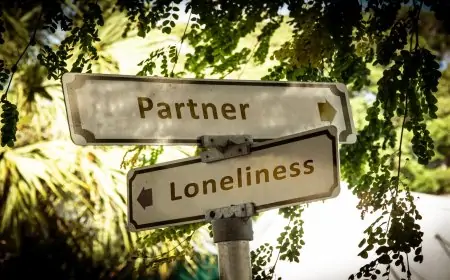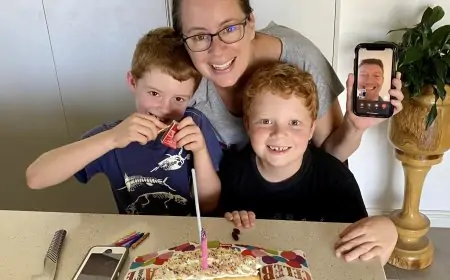We all love our friends and family… most of the time. Many of us rely on their support and understanding to get us through difficult times, including when we hit speed-bumps or rocky patches in our relationship, and if there’s one thing that guaranteed, is that you’ll hit a speed bump or two when you’re in a long distance relationship.
Long distance relationships are hard work, and you’ll often find that for one reason or another, your emotions will be running high. You will have times when you miss your significant other intensely, and you will have times when the complications of distance cause misunderstandings and frustrations and doubts. And because long distance relationships can put a lot of added stress on a couple – affecting their individual lives as well as the relationship – it’s only natural that we’d turn to our support system (namely friends and family) for advice and solace.
After all, these are times of hardship, when our hearts are tender and we miss the one we love dearly. These are the times when we expect our family and close friends to be there for us, to have our back and to offer a shoulder to cry on.
Unfortunately, though, in some cases, going to friends and family to discuss your long distance relationship issues only adds extra problems into the mix. In fact, you should really think very carefully before you share personal details about your LDR with your family and friends, and you should keep their opinions at arm’s length.
Why? Well, here are 5 good reasons you should keep your friends and family out of your long distance relationship:
1. You won’t be getting unbiased advice
Long distance relationships are by no means perfect and easy. Many people romanticise them, focusing on the star-crossed lovers aspect rather than the day-to-day misery.
But long distancers have problems, and sometimes you need help and support. And that’s totally fine!
The problem with going to close friends and family for this support is that (in some cases) you won’t be getting the support you actually need. Why? Because your friends and family probably don’t know your partner very well. They aren’t likely to have spent a great deal of time getting to know them, and in many cases they won’t have ever even spoken to them, let alone met them.
How can you get advice about a relationship with someone who is a complete stranger to the person you’re seeking said advice from? It’s not really fair to expect any valid advice in this type of situation because your friends and family won’t have the context required to actually lend any helpful tips. As a result, they’re likely to base whatever advice they do give, off of their knowledge of only you – not taking the other person into consideration at all.
2. You can accidentally taint their opinion of your partner
Since your friends and family won’t have spent a great deal of time with your love, they’re relying on everything you tell them and building their opinion solely on this information.
And let’s face it, not everything they hear will be good. You might complain about your partner’s poor communication habits, about how they can’t afford to come and visit you as much as you’d like, how they don’t always take your feelings into consideration or how you hate when they disappear in the middle of a text conversation, only to resurface hours later like nothing happened.
You know… normal and frustrating long distance issues.
But like we said, emotions run high in a long distance relationship and sometimes our venting can come across as more than just getting frustrations off your chest – especially to parents and other family members.
So always be careful what you say about your love in front of friends and family. If you’re constantly complaining, it’s easy to see how a bad opinion can be formed. And that’s the last thing you want. If you can’t always monitor the way you speak about your partner in front of your support network, that’s something you’ll need to work on. Nobody should ever hear you badmouth your partner. Sure, sometimes we need advice, but it’s vital that you frame everything in a positive way.
Your partner isn’t nearby to protect their reputation, so that’s your job.
3. Some people just don’t *get* long distance relationships
Anyone who has ever been in one knows this. Many people are instantly skeptical of the entire concept.
“Long distance? Why would you want to do that?”
“What’s wrong with him? Can’t he get a girlfriend who lives near him?”
“She’s probably not actually a girl. I bet it’s some middle aged guy in Nebraska pulling a prank on you.”
Yeah, thanks guys. Thanks for the support.
But this is the unfortunate truth: some people just don’t get it, and that’s their prerogative. Because we love our friends and family and want their support in something as important as a relationship, we can find ourselves putting a lot of energy into trying to convince them it’s valid. And that can absolutely cause problems in your relationship, so it’s best to not go there.
What should you do instead?
Lead by example. You don’t need to regularly discuss your long distance relationships with the skeptics in your life, so just keep doing you. Let them see how positive your relationship is and how happy this person makes you. Eventually, they’ll come around. And if they don’t, do you really want that kind of person in your life?
4. Your relationship should be sacred
Most people put a whole lot of work into their long distance relationship, because that’s what it takes to make it work. Again, it’s your job to protect your partner’s reputation, but it’s also your mutual job to protect the relationship in general.
Cultivating a successful relationship that stands the chance of making it to the finish line is a huge investment from your heart. Opening that relationship up to too many outside opinions and toxic commentary is not conducive to keeping your relationship sacred.
Of course, nobody would suggest that you suffer in silence. In fact, it can be very dangerous to build any relationship (whether long-distance or in-person in a total vacuum). However, when there are problems in a relationship, the best place to start is internally. Talk and work with your partner to fix the issues and find positive solutions.
If you do need to talk to someone about your problems or struggles as a couple, choose wisely. Go to those people that know your partner best and can therefore give you unbiased advice without risking damaging their opinion of partner; Go to your friends who are discreet, level-headed, and wise; Go to other people who have experience in long-distance relationships; Go to people whose relationship you expect. And, remember, still take everything they say with a grain of salt, remembering it’s impossible for someone else to really know the whole story.
5. You don’t need that negativity in your life
For the naysayers, cynics and people who just don’t get it, you don’t need that kind of negativity in your life. Long distance is hard enough to make work without external negativity. When you’re being fed negativity from an outside source, it can affect your thoughts and feelings about your partner.
“Wait, maybe he is taking me for granted.”
“Oh my god, she actually is kind of annoying.”
“I’m going to freak out. Maybe she’s right – maybe he’s avoiding me because he met someone else!”
Many people working their way through a long distance relationship are struggling with these thoughts from time to time anyway. You do not need added doubt coming from those you love and trust.
Most of the time, these comments are meant to be harmless. People don’t want to upset you or affect your relationship, but a lot of times people speak or act before they think about how it can affect you. And that’s the kind of negativity you don’t need. Take a step back and avoid the people who will feed that into your life.
Never burn any bridges over your relationship (except perhaps in extreme situations). If your friends and family are dumping their negativity onto your relationship, causing problems for you, or if they just don’t get it, all you need to do is take a step back. Stop involving them in conversations around your relationship and if they bring it up, politely change the subject and say you’d prefer not to discuss it with them.
Talk about the things you used to talk about.
Why should you avoid burning bridges? Because people usually come around. And even if they don’t and one day the relationship ends, you’ll still want your support network and loved ones around you.
Do you have any horror stories to do with family and friends getting in the middle of your long distance relationship? How did you resolve the problem? We’d love to hear your solutions!
Guest authors
Aindrea & Rich are the once long distance couple behind From Long Distance to Marriage, a website and podcast dedicated to supporting those navigating the long distance journey.











![[WATCH VIDEO] Sophie Rain and sister Sierra Rain as Black Spiderman goes viral [WATCH VIDEO] Sophie Rain and sister Sierra Rain as Black Spiderman goes viral](https://www.sociallykeeda.com/uploads/images/202403/image_140x98_660976c59cce0.webp)





![[FULL WATCH VIDEO] Will Levis And Gia Duddy Leak Video Viral On Social Media [FULL WATCH VIDEO] Will Levis And Gia Duddy Leak Video Viral On Social Media](https://www.sociallykeeda.com/uploads/images/202405/image_140x98_6651e7ae8038d.webp)


